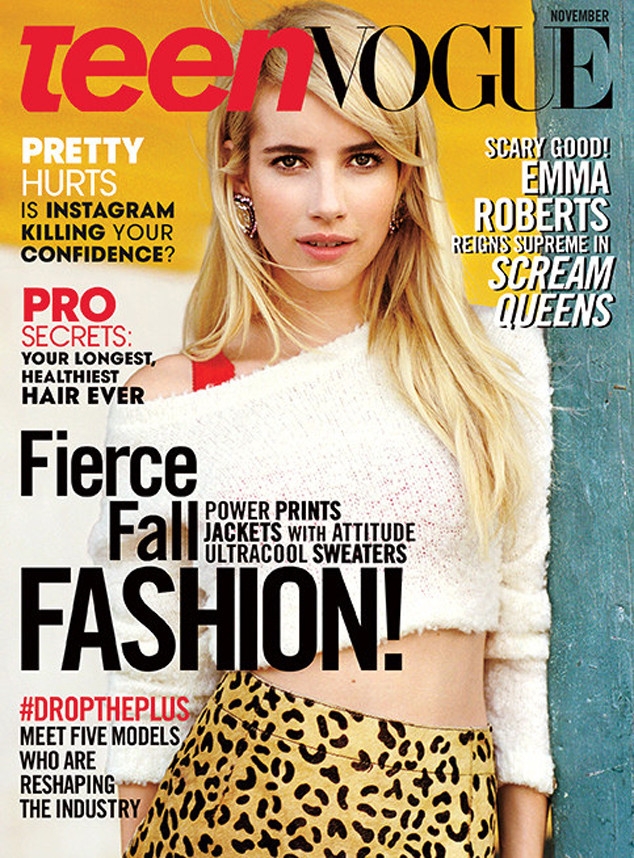
Sorry it took me so long to share this with you, but I’m in this month’s issue of Teen Vogue!
SO GO BUY THE MAGAZINE WHILE IT’S STILL ON THE SHELVES!
(and then turn to page 101…like these girls)
lol

Aaaahhh you guys I’m featured in a cover story!
I’m so excited about this :)
Kayleen Schaefer, a writer at Teen Vogue, reached out to me a while back asking for my opinion about photo editing apps, social media, and the affect they all have on young women’s self-esteem and mental health.
I gave her some LOOONG answers, as I have STRONG opinions about this. And while she couldn’t use everything I said, we had a really great conversation. By the end of it Kayleen really understood just how big a role social media plays in our generation’s lack of self esteem.
The number of teens opting for plastic surgery is growing, and Instagram is adding pressure to be 100% perfect, 100% of the time.
Just look at the sheer number of ridiculous trending hashtags, like #KylieJennerChallenge, in which people went to dangerous lengths to achieve Kylie Jenner’s fake lips on their own. Or #thighgaps which is simply a terrifying trend and I am SO glad that Instagram and other social media sites ended up banning the hashtag.
(Although people have made workarounds by creating hashtags like #thighgapp, #thighgappp, and #thighgapss. This just proves to me that my work is far from done.)
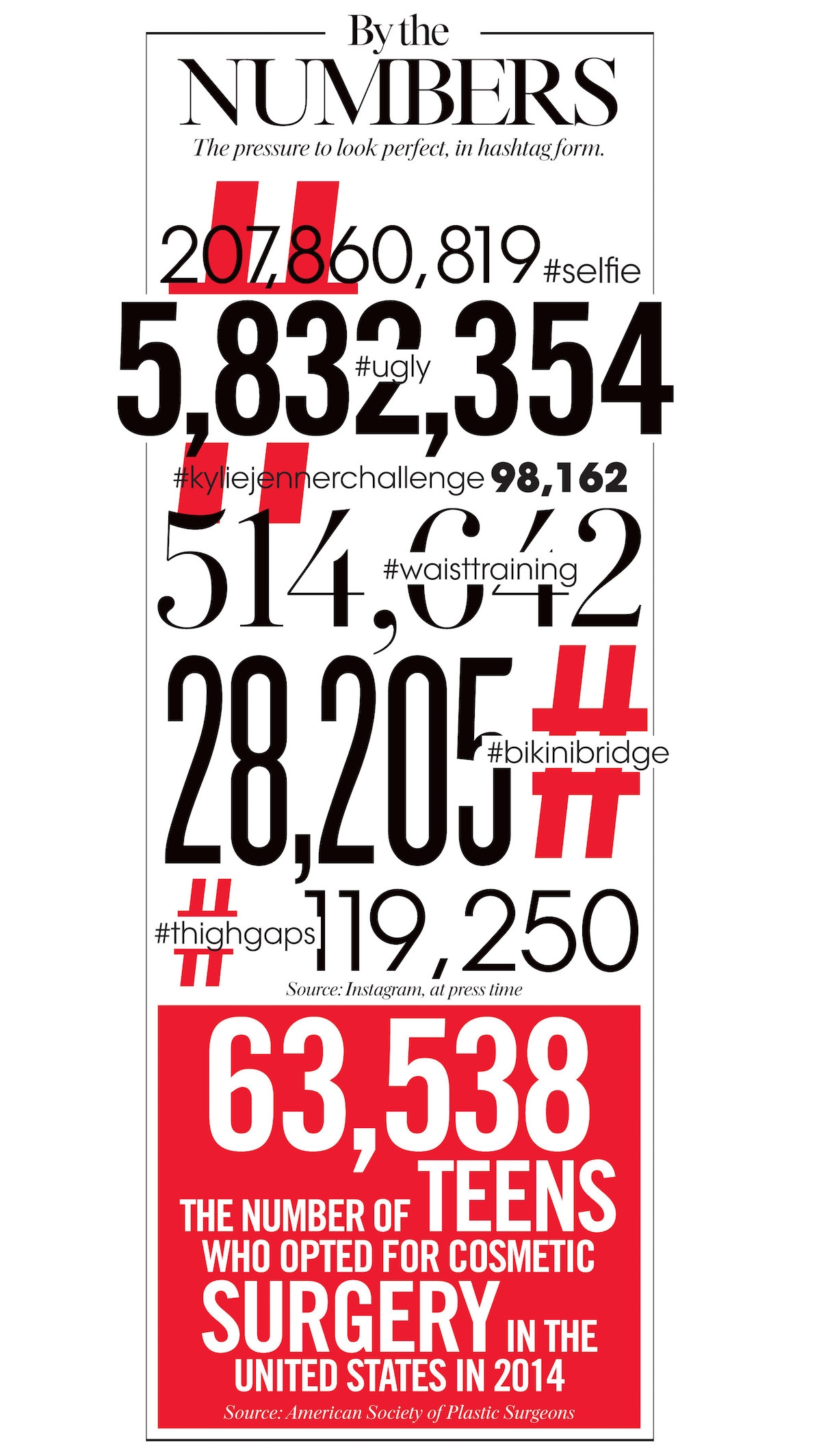
And here are some of my favorite answers I gave during the interview:
. . .
Instead of heading to the dermatologist to try and make yourself look more like your online ideal, did you stop editing your pictures altogether?
I have gone to the dermatologist since I was 9 years old. My friends have been going to the same dermatologist in santa monica for even longer. Sometimes there’s really nothing you can do to “cure” your skin. You can change your diet, you can take prescription pills, you can try different skin care products, but at the end of the day, how much should we be fighting against our bodies? How much money do we have to spend on ourselves to be perfect? We need to be careful that when someone shows their “flaws” we don’t associate it with “well they have just given up. They don’t care about their skin, or they don’t care about their health.” You never know if a person has spent their entire lifetime trying to “fix” themselves. And what works for one person might not work for the other, so in reality, there really is no “cure” for everything that bothers us. The closest thing to a cure? Self-love.
Remember, just because I’m showing my acne, doesn’t mean I have given up on my skin. I still try different things and would still LOVE to have clear skin. But I was tired of waking up in the morning and not wanting to leave my house because of how I looked. Or crying myself to sleep. Or staying in on weekends because I didn’t feel beautiful. To add insult to injury, I would lie in bed and look at flawless pictures of others on social media, which only made me spiral into deeper self hatred because I looked nothing like anyone I saw.
Are you trying to embrace yourself as you are even though it can be tough sometimes?
Yes. Every day is a battle to love yourself. It gets easier, but it never gets easy. We are bombarded by images every hour of every day. If not on social media, then online, in advertisements, billboards, stores, movies… Everywhere you look there’s a flawless woman selling you something or acting as a role model for girls. Our heroes are very limiting, and until we have every shade of skin color, people with disabilities, all weights, skin disorders, and “regular people stuff” like acne, bags under the eyes and stretchmarks represented in mainstream culture, then you will still have people on Instagram smoothing their skin and plumping their lips, trying their best to fit in.
Did you say that when you’re not feeling great, it does feel like you’re the only person in the world who’s not perfect?
Yes, because other than “skinny, white, tall, big hips, smooth skin, youthful, plump lips, good hair, and tiny nose,” we really don’t have anyone to look up to. And yes there are a handful of women trying to change that, but it’s not enough. We have to flip the way we view women and their bodies on its head and start from a place of promoting self love.
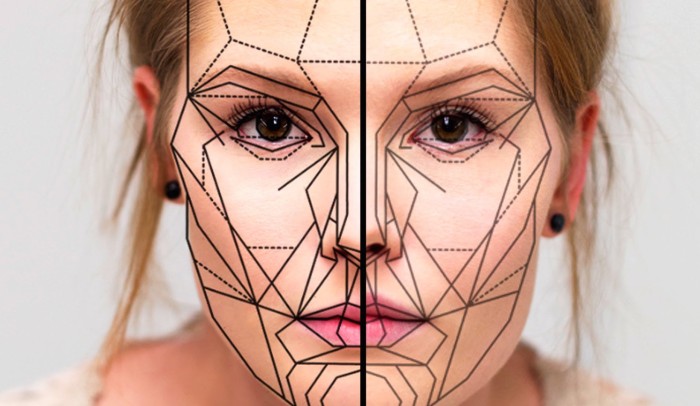
Now without further ado, for those of you who don’t feel like searching the grocery story for a Teen Vogue…
Here is the full article!
. . .
We present our best selves online — in or Insta-feeds we’re all basically Beyonce — but lately, with the rise of simple-to-use photo-editing apps such as Facetune, there’s pressure to make our best selves even better. In a few taps, it’s possible to achieve flawless skin, gleaming teeth, standout eyes and pouty lips. With endless ways to digitally delete a pimple or an out-of-place hair in a selfie, why would you let your followers see the real you?
“People are more open about it now,” says Paolina Russo, 20, a fashion student in London. “I was taking photos with my friends, and afterward she opened Photoshop and changed her face. It was something she was used to doing. She had a method. You know your face, and you know your edited face.”
But looking one way online and another in the mirror may be making many young women despair about the disconnect. After all, those Likes aren’t for the real you; they’re for the Facetuned you. “If people are complimenting a girl for looking amazing in a photo that’s been self-corrected, what does that say to the girl?” says Robyn Silverman, Ph.D., a body-image expert and the author of Good Girls Don’t Get Fat: How Weight Obsession Is Messing Up Our Girls and How We Can Help Them Thrive Despite It.
Many might wonder what it would take to match their digital and IRL selves. And if it’s possible that a cosmetic procedure might give them the same result a Facetune tap would, they could be open to it. In 2014, more than 160,000 teens ages 13 to 19 had cosmetic minimally invasive procedures, such as chemical peels, injectables and laser skin resurfacing, and more than 63,000 had surgical ones, such as nose reshaping or breast augmentation, according to the American Society of Plastic Surgeons.
“It is very common these days for young women to not just accept a photo taken of themselves as it is,” says Vivienne Lewis, D.Psych, a clinical psychologist in Australia and the author ofPositive Bodies: Love the Skin You’re In.
“There’s an obsession with needing to touch it up and trying to perfect it as much as possible. This obsessiveness with appearance can lead to a desire to actually change their appearance in real life through plastic surgery or getting perceived flaws, such as freckles and spot marks, removed.”
Gloria Cavallaro, a creative consultant in her 20s, started fixing on the shape of her lips afters regularly posting selfies in a creative series intended to showcase her makeup looks. To make her lips look more symmetrical and pillowy, she overdrew them with lip pencil, putting the line outside her natural shape. It wasn’t long before she made the leap from exaggerating her lips with makeup to seeking permanent change. “in paying more attention to my lips, I was definitely moved to look into dermal filler to correct and plump them,” she says. “Selfie culture means you have to be camera-ready at all times.”
Gloria, who had already been going to a dermatologist for years to perfect her skin with chemical peels and laser treatments, eventually decided to have hyaluronic acid injected in her lips. Now her actual lips look just like the ones she used to draw on.
Even after these procedures, however, Gloria continues to refine her image online with Facetune — specifically, she evens out her complexion and defines her eyes. “I’m a big Facetune fan,” she says.
Julie Russak, M.D., a dermatologist and the founder of Russak Dermatology Clinic in New York, has many patients in their late teens and early 20s looking to fine-tune their complexions. “This heightened focus on the appearance of skin comes from an obsession with filtered photos on Instagram,” she says. “We’re becoming preoccupied with the close-up of the face It’s easy for my young patients to lose perspective. Sometimes I take away the mirror that’s in front of their face and put a big mirror far away from them When the camera is close, all you can see that one imperfection.”
In addition to making us focus on minuscule flaws, Instagram has given rise to an unattainable beauty standard. It can be a constant scroll of unreal body parts — the pumped-up lips, the thigh gaps, and the yanked-in waists — that many women now aspire to have. Among the most followed and most influential augmented faces on Instagram is 18-year-old Kylie Jenner. Before she publicly admitted to using injectables, her noticeably enhanced lips sparked a social media phenomenon known as #KylieJennerChalennge in which people went to dangerous measures to temporarily inflate their own lips using a shot glass as a suctioning device. Kylie’s televised admission triggered a record uptick in the popularity of Google searches globally for lip fillers.
“Many younger patients want enhancements and sometimes desire excessive procedures that may appear unnatural,” says Jessica Weiser, M.D., a dermatologist with New York Dermatology Group. “They’re at that age where some of them start to think they can control their appearance and enhance what they want. They often want a lot o lip filler, more intense laser treatments, stronger chemical peels, et cetera. We see these extremes in the media, and these mages translate into real-life requests by young women aspiring to their cosmetic ideal.”
Jennifer*, 21, in New York, recently had rhinoplasty to make her nose smaller. She’d been self-conscious about her nose for five years before deciding to go through with the surgery. “It was always the first thing I would see in a picture,” she says. Whenever she thought it seemed too big, she deleted or untagged herself in the post. But Jennifer never used any photo-editing tools to envision what she might look like with a smaller nose. she knew the picture she’d see wasn’t going to mimic what she’d look or feel like post surgery. “Using editing apps is temporary and instant,” Jennifer says. “There’s no pain or investment involved. At the end of the day, they’re games. The thing about surgery is that the doctor can change only so much. In an app you can change things that would never be possible to alter in real life.”
Dana Suchow, a body-positive style blogger and the founder of dothehotpants.com, used to edit her photos so that she looked as perfect online as she wished she did while walking down the street. She made her stomach flat and her skin impeccable — an effort to fake her way to being just like the rest of the flawless creatures she saw in her social media feeds.”
Instead of making her feel better, though, faking her online images made Dana more upset about her actual body. “You post this beautiful edited picture of yourself in a dress, then you come back down to reality when you see yourself in the mirror and you don’t look like that. I felt like I was lying,” she admits.
“Our idea of what ‘real’ people look like is so warped these days. No one can tell what is real and what is fake anymore. lip jobs and nose jobs are setting the new standards of beauty.”
Instead of continuing to chase a false reflection, Dana decided to stop editing her pictures in an attempt to embrace herself just as she is — but she admits it can be tough sometimes. “There is an unattainable beauty ideal being shoved down our throats. To not follow that ideal is a form of revolution, and it is a very scary revolution to do on your own,” Dana explains. “When I’m not feeling great, it does seem like I’m the only person in the world who’s not perfect.”
The truth is, though, no one will look the same way IRL as they do in a Facetuned pic (even Beyonce’s been accused of editing her photos). And, as everyone who’s erased one perceived flaw and immediately moved on to obsessing about the next knows, perfection is a constantly moving target — it’s anyone’s guess what body part social media will make us fixate on next.
Plus, the idea of every girl going after the same beauty standard, whether it’s large lips or sharply contoured cheekbones, is depressing. It’s one thing to have the same flared jeans as your bestie, but having the same face as her — even if it’s only Instagram — is bound to make you both feel like soulless clones eventually. Keep in mind: The best photo of all is one where you look like yourself.

I hope my words helped some people.
Much love everyone, and have a fantastic weekend.
Don’t forget to love your body,
AND DON’T BELIEVE EVERYTHING YOU SEE ONLINE!
:)
XX-HOTPANTS



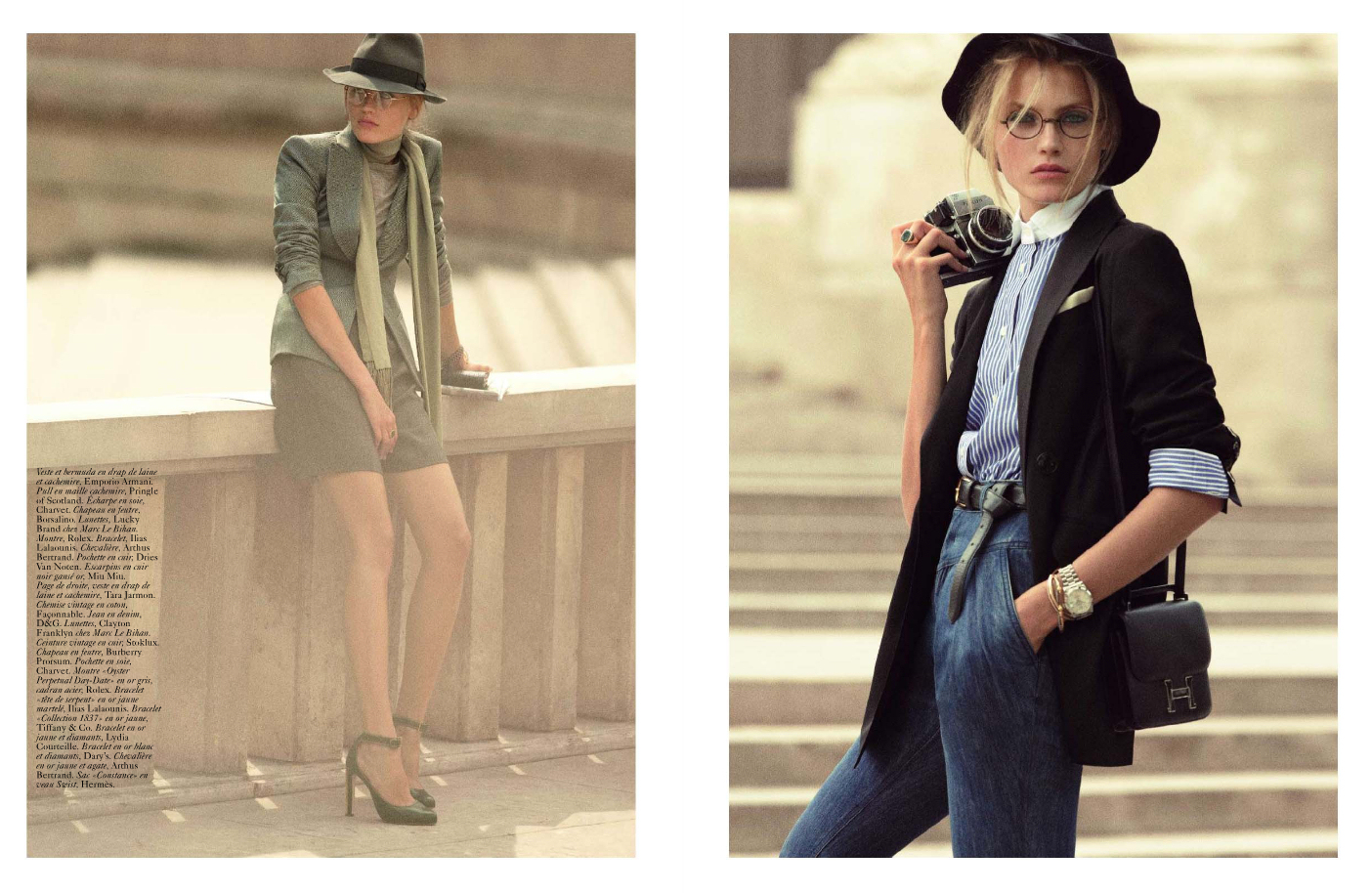
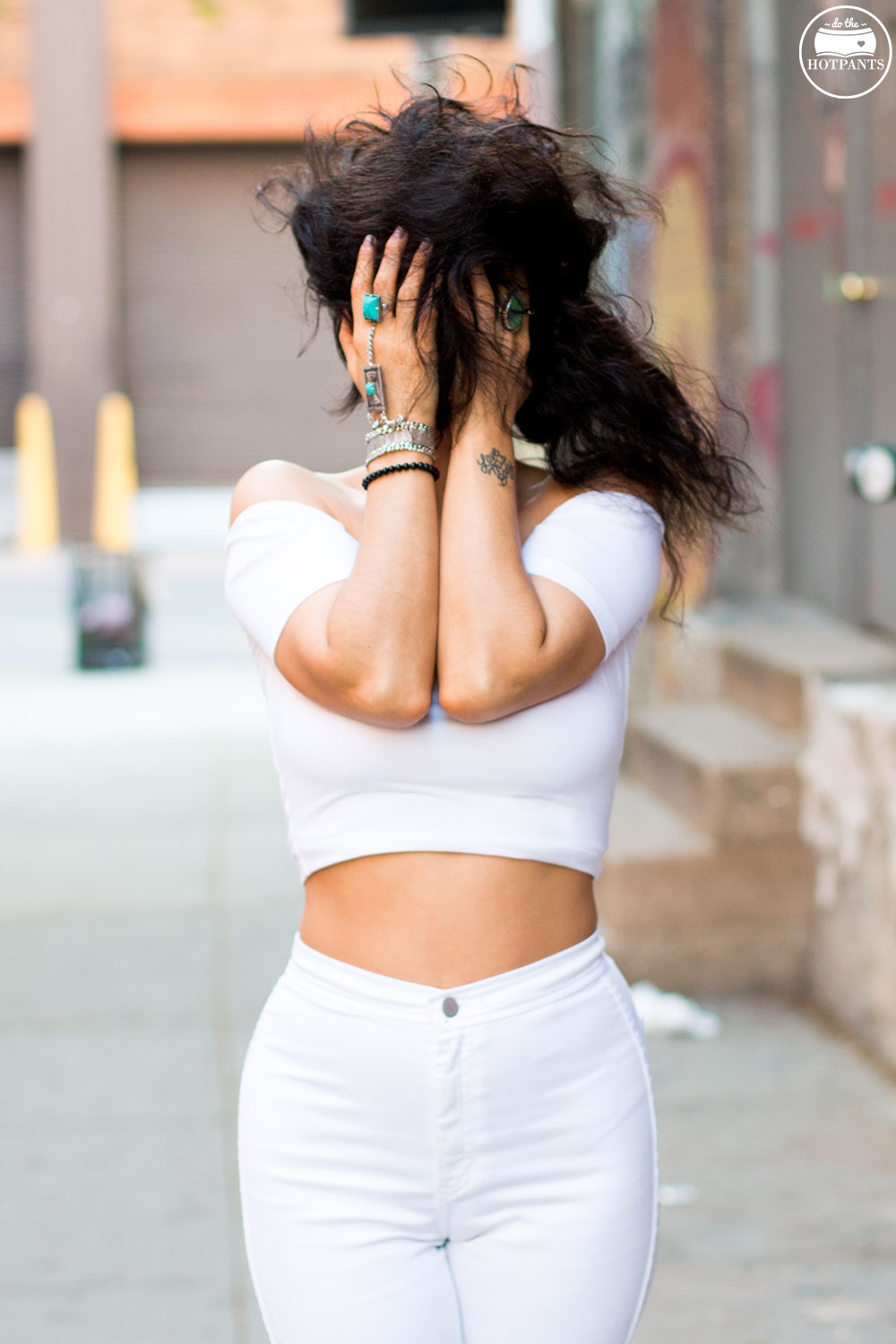

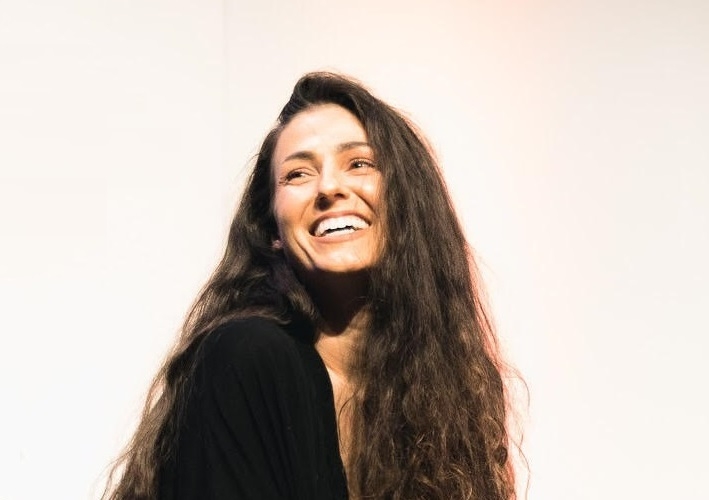 Since overcoming Bulimia and Binge Eating Disorder, Dana Suchow has become an expert in the field of body image and eating disorder prevention. Offering a nonclinical and holistic approach, Dana will teach you how to put your child on a path towards body love, empowerment and self-acceptance.
Since overcoming Bulimia and Binge Eating Disorder, Dana Suchow has become an expert in the field of body image and eating disorder prevention. Offering a nonclinical and holistic approach, Dana will teach you how to put your child on a path towards body love, empowerment and self-acceptance.




Your words truly make the difference!! Magazines need more articles like this, I’m so happy for your interview!! :)